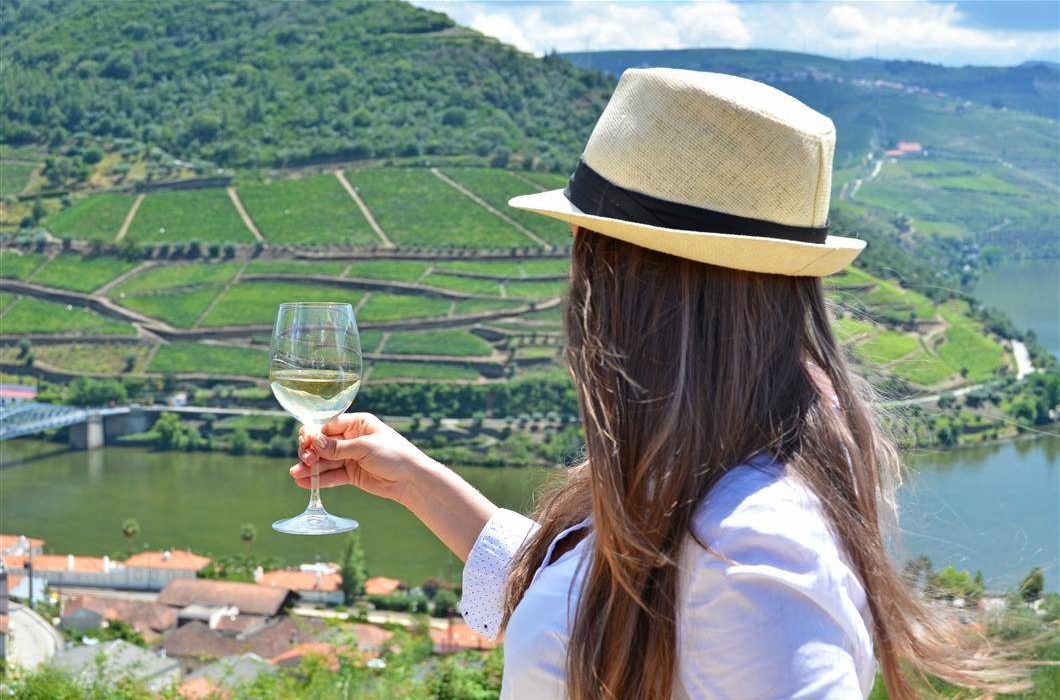
You might also like:
The Portuguese Secretary of State for Tourism announced a set of measures to turn the country into a popular wine tourism destination. The measures should focus on professional training, product qualification, and marketing. Last year, 2.5 million tourists came to Portugal to seek some wine experience.
“The objective behind this plan is to turn Portugal into a ‘must see’ destination in wine tourism”, Ana Mendes Godinho revealed. The minister explained that the plan has different axes: product qualification (restaurants, accommodation, wine cellars or wine producers), professional training, a calendar of events and campaigns to attract journalists and tour operators to Portugal while digitalizing the offer and creating a national online platform.
Domestic wine consumption is growing, boosted by tourists’ purchases, and already represents more than 50% of exports, worth € 800 million. The sector is thus highly beneficial to the economy. Tourism will be “the main engine of the growth of the wine sector in Portugal in the coming years”, and in a growth that has an unexpected format: sales at the door of the farms and wineries. This is one of the first conclusions of the study that is being developed under the CV3 Project (Value Creation in Vine and Wine) by AESE Business School and the University of Trás-os-Montes and Alto Douro (UTAD).
Ana Mendes Godinho informed that the training efforts should start in the first half of this year, encompassing about 1.600 people who will be specifically trained in this area.
The platform, currently under development, will gather the entire national wine tourism offer, which meets the established requirements.
“It will also allow us to be visible online, providing an online booking option, one of the Portuguese shortcomings identified, since we don’t have this online offer properly available, in an organized and structured manner,” she added.
The plan of developing Portugal into wine tourism destination involves regional tourism entities, ViniPortugal, the Portuguese Association of Wine Municipalities (AMPV) and the Portuguese Association of Wine Routes (ARVP).
“It is also a way to articulate all the players involved in wine tourism, another weakness that we have identified during the establishment of the strategy,” Ana Mendes Godinho said.

The sector’s analysis has been organized for about six months now, conducted by a team of Turismo de Portugal, not only internally to assess the national offer, but also ascertaining a comparison with other international destinations.
In this context, a “reconnaissance mission” took place in South Africa to see how the country structured the product and established itself internationally as a hallmark destination.
The Secretary of State also declared that wine tourism “already accounts for about 10% of those who want to visit Portugal”.
“We have about 2.2 million visitors a year who have wine tourism destinations and gastronomy on the top of their itinerary or it is a complementary reason to visit the country,” she added.
United Kingdom, Brazil, USA, and China are the countries that send more tourists to Portugal. The country has 260 wine tourism facilities and, in 2018, 1.870 international articles were focused on the subject.
“The ambition with this plan is to turn wine tourism into an instrument of communication and promotion of Portugal, and the goal is to attain 10.000 annual international articles focused on the sector”, she said.
The plan also includes the organization of the 5th Global Conference on Wine Tourism promoted by the World Tourism Organization (UNWTO), in 2020.
Ana Mendes Godinho emphasized that, under the umbrella of the Valorizar and Portugal 2020 programs, 36 projects have been already supported with a sum of 35 million euros, which leveraged investments worth 60 million. These projects intend to qualify for the product offer.
Source: tourism-review.com
